|
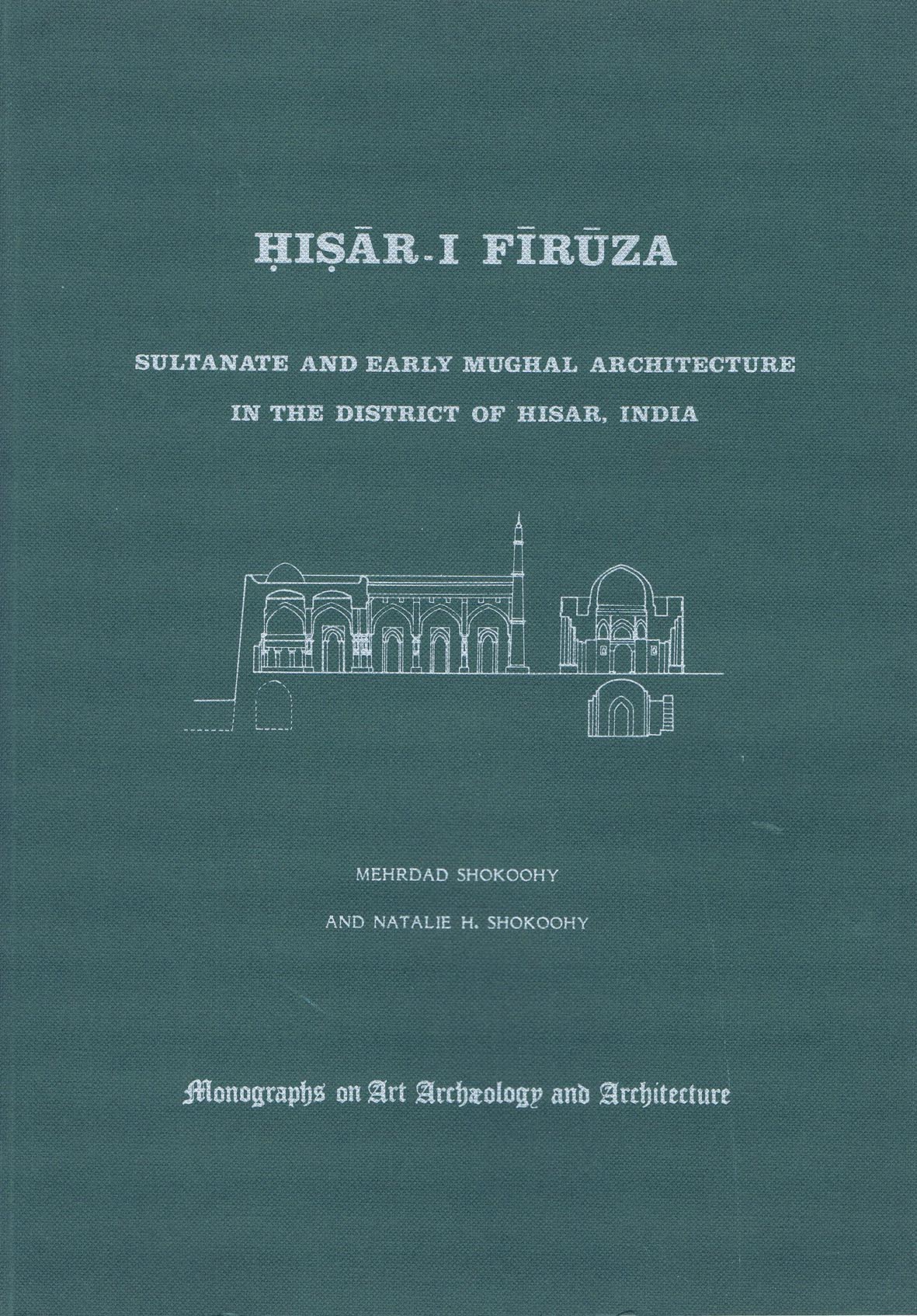 HISAR-I FIRUZA: Sultanate and Early Mughal Architecture in the District of Hisar, India HISAR-I FIRUZA: Sultanate and Early Mughal Architecture in the District of Hisar, India
Mehrdad Shokoohy & Natalie H. Shokoohy
London, publication date 1988
138 pp., 47 line drawings, 142 monochrome photographs, Appendix and Index
ISBN 978-1-870606-00-4 Paperback Price £19.00 plus p&p US$ 26.00 plus p&p
ISBN 978-1-870606-01-1 Hardback Price £27.00 US$37.00 plus p&p
The Hisar district of Haryana is rich in historical buildings of both the Sultanate and Mughul periods, concentrated mainly in Hansi, the ancient capital of the region, and in Hisar-i Firuza, founded in 1356 as the new regional capital. The book is the first detailed study of the Islamic architecture and town planning of the district, and is the result of surveys carried out by the authors in 1981 and 1984 on the 13th-16th century monuments of the towns of Hisar, Hansi, Tosham, Fatehabad and Barwala, as well as Ladnun in Rajasthan which until the late 14th century was under Hisar.
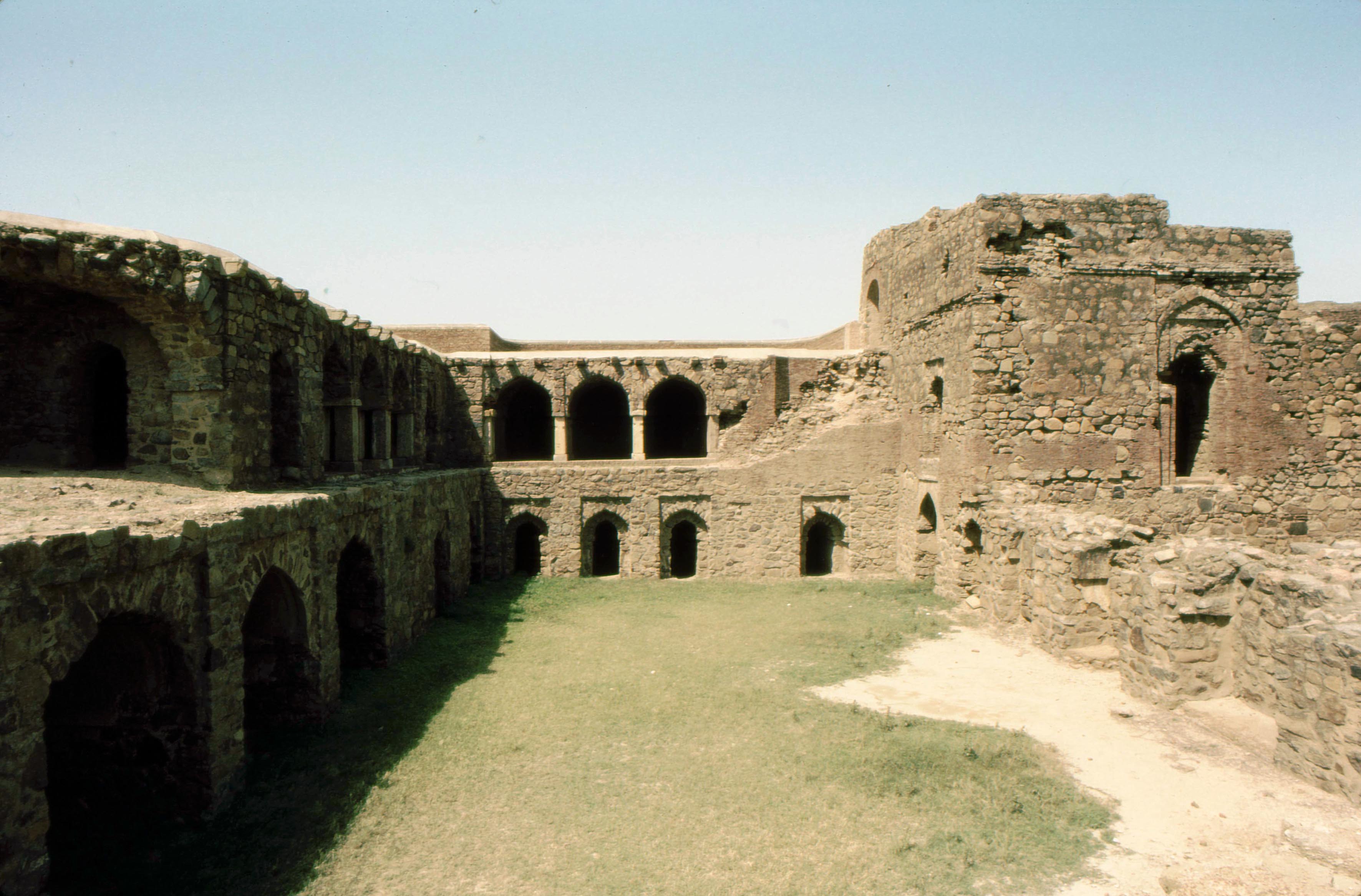 Hisar-i Firuza also covers the history of the region from the original sources, epigraphs and the evidence of the historical remains. There are 47 architectural drawings and 142 photographs. Hisar-i Firuza also covers the history of the region from the original sources, epigraphs and the evidence of the historical remains. There are 47 architectural drawings and 142 photographs.
View of the north court of Firuz Shah's Palace at Hisar, designed by the Sultan
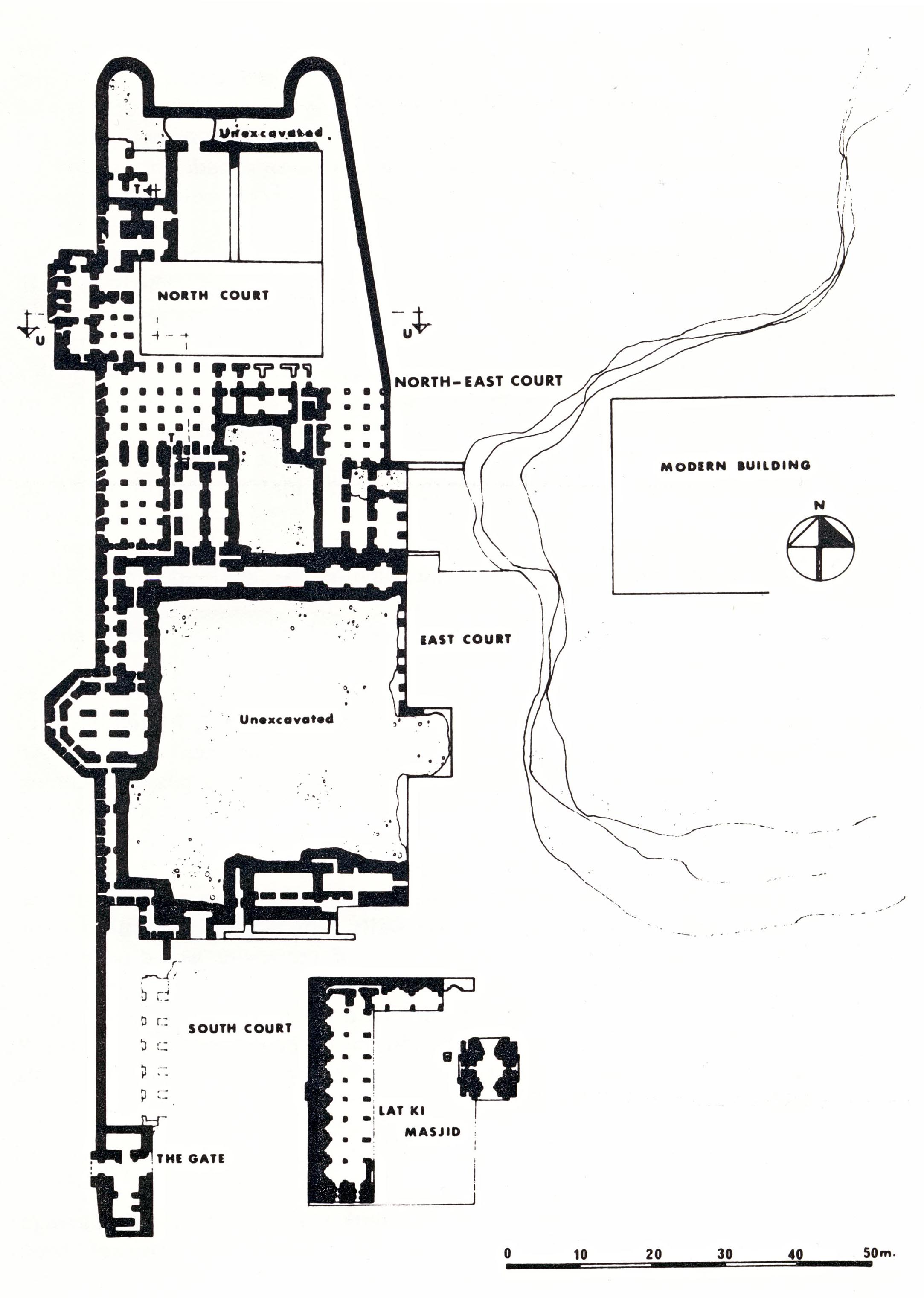 "I heard from my father that Sultan Firuz Shah, after his return from the country of Bengal, was in the vicinity of Hisar-i Firuza for two and a half years engaged in efforts of all kinds for the care of the country... At the place where the city now stands there were, by the wisdom of the Lord of the two worlds, two large inhabited villages ... the Greater Laras consisting of fifty huts and the Lesser Laras of forty. In that region there were, of course, no habitations apart from huts. When His Majesty King Firuz saw the land ... from his blessed mouth came the words 'how good it would be for a town to be built here'. This was because this area had, by the wisdom of the Lord of the two worlds, always been deficient in water, to the extent that in the summer weather, when travellers from Iraq and Khurasan reached that place they used to buy four chitals of water in a pitcher for cash... His Majesty the King took it upon himself to strive in every way and brought water from two streams to the vicinity of Hisar-i Firuza. Canals were brought from River Jumna and from thee head of Sutlej ... for eighty kuruh (240 km.) to the town...His Majesty completed the construction of the town with gladness and delight." "I heard from my father that Sultan Firuz Shah, after his return from the country of Bengal, was in the vicinity of Hisar-i Firuza for two and a half years engaged in efforts of all kinds for the care of the country... At the place where the city now stands there were, by the wisdom of the Lord of the two worlds, two large inhabited villages ... the Greater Laras consisting of fifty huts and the Lesser Laras of forty. In that region there were, of course, no habitations apart from huts. When His Majesty King Firuz saw the land ... from his blessed mouth came the words 'how good it would be for a town to be built here'. This was because this area had, by the wisdom of the Lord of the two worlds, always been deficient in water, to the extent that in the summer weather, when travellers from Iraq and Khurasan reached that place they used to buy four chitals of water in a pitcher for cash... His Majesty the King took it upon himself to strive in every way and brought water from two streams to the vicinity of Hisar-i Firuza. Canals were brought from River Jumna and from thee head of Sutlej ... for eighty kuruh (240 km.) to the town...His Majesty completed the construction of the town with gladness and delight."
An account by the 14th century historian Shams-i Siraj
Plan of palace of Hisar
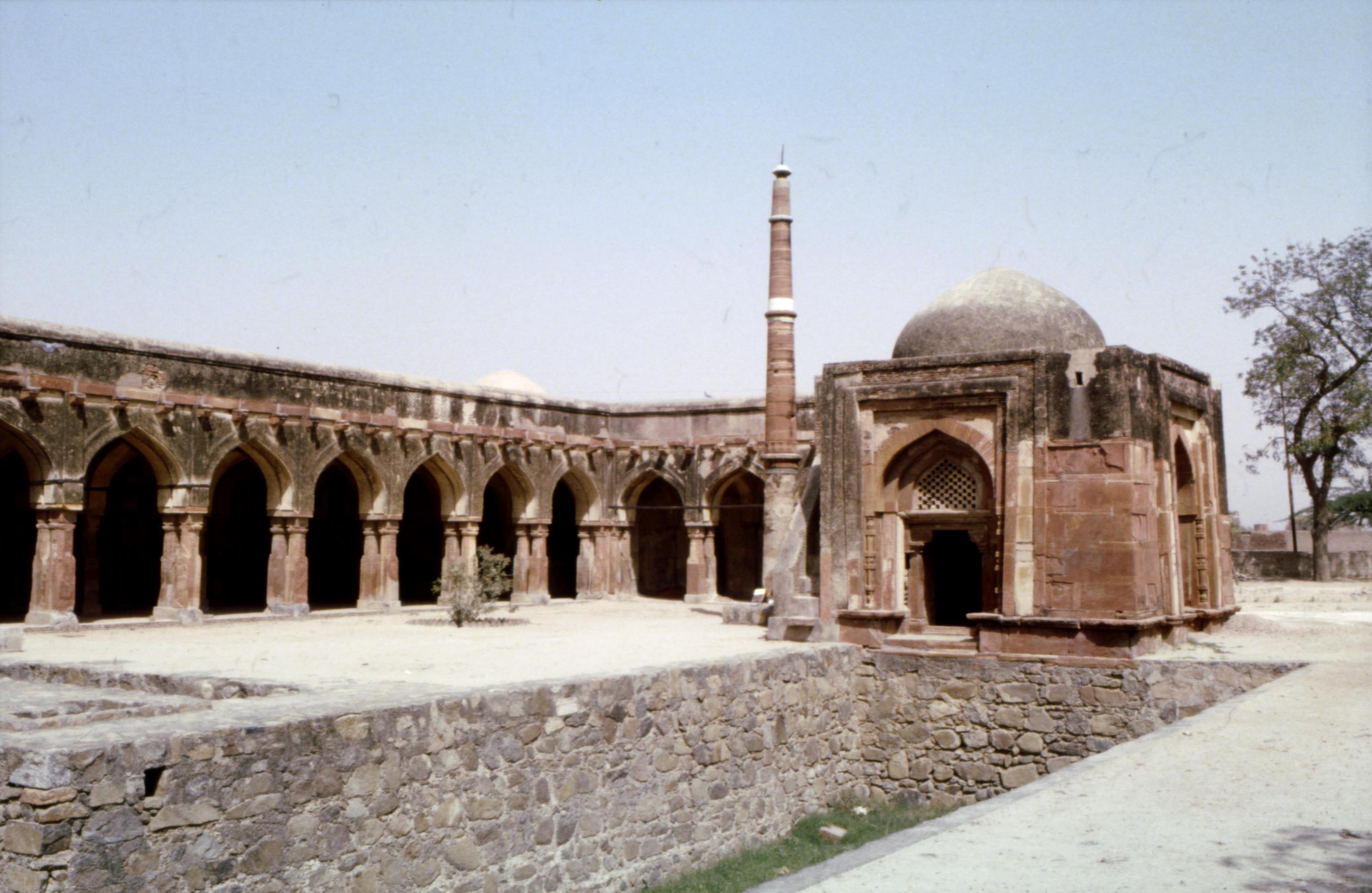 The region was at the crossroads of a main route from Iran and Central Asia to India. The traumatic introduction of Islam to the area was the conquest of the “virgin fortress” of Hansi by the Ghaznavid Sultan Masud on 1st January 1038. It was also in this region that in the battle of 1192 Prithvi Raja lost the kingdom of northern India to the Ghurid sultan Muhamad ibn Sam, the founder of the Delhi Sultanate. Hansi was later to become a Sufi Centre where Shaykh Jamal al-din Hansawi and his descendents established their khanaqah. The throne of the notable Chishti Shaikh, Farid al-din Ganj-i Shikkar is preserved there. The region was at the crossroads of a main route from Iran and Central Asia to India. The traumatic introduction of Islam to the area was the conquest of the “virgin fortress” of Hansi by the Ghaznavid Sultan Masud on 1st January 1038. It was also in this region that in the battle of 1192 Prithvi Raja lost the kingdom of northern India to the Ghurid sultan Muhamad ibn Sam, the founder of the Delhi Sultanate. Hansi was later to become a Sufi Centre where Shaykh Jamal al-din Hansawi and his descendents established their khanaqah. The throne of the notable Chishti Shaikh, Farid al-din Ganj-i Shikkar is preserved there.
Lat ki Masjid, the Royal mosque of Hisar
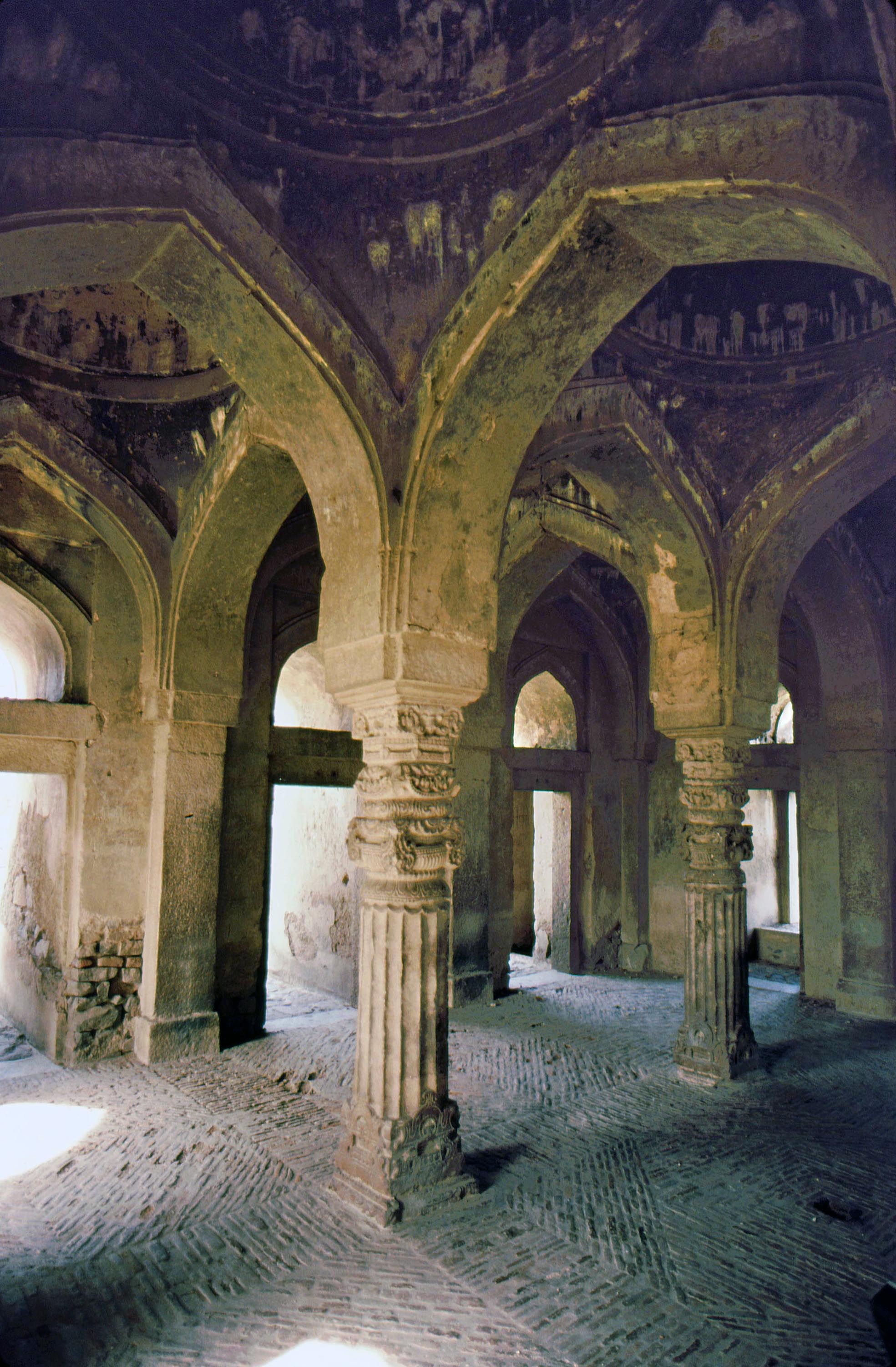 The foundation of Hisar was the Tughluq Sultan Firuz Shah’s response to the challenge of creating a town in the desert. He personally supervised the design and construction of the town and 240 kilometres of canals to provide water for the region. The surviving parts of his palace are the most extensive remains of a palace of the Tughluq period, the style of which is echoed in the palaces of the later sultans, including the Royal buildings of Mandu The foundation of Hisar was the Tughluq Sultan Firuz Shah’s response to the challenge of creating a town in the desert. He personally supervised the design and construction of the town and 240 kilometres of canals to provide water for the region. The surviving parts of his palace are the most extensive remains of a palace of the Tughluq period, the style of which is echoed in the palaces of the later sultans, including the Royal buildings of Mandu
Interior of the Gujari Mahal garden pavilion at Hisar
SELECT CONTENTS:
HISAR:
History Town plan Water supply The Palace of Firuz Shah Lat ki Masjid Gujari Mahal and garden complex Jahaz Kothi Tombs Mosques and the idgah
HANSI
History Town Fort Barsi gate Dargah of Chahar Qutb Site of the idgah 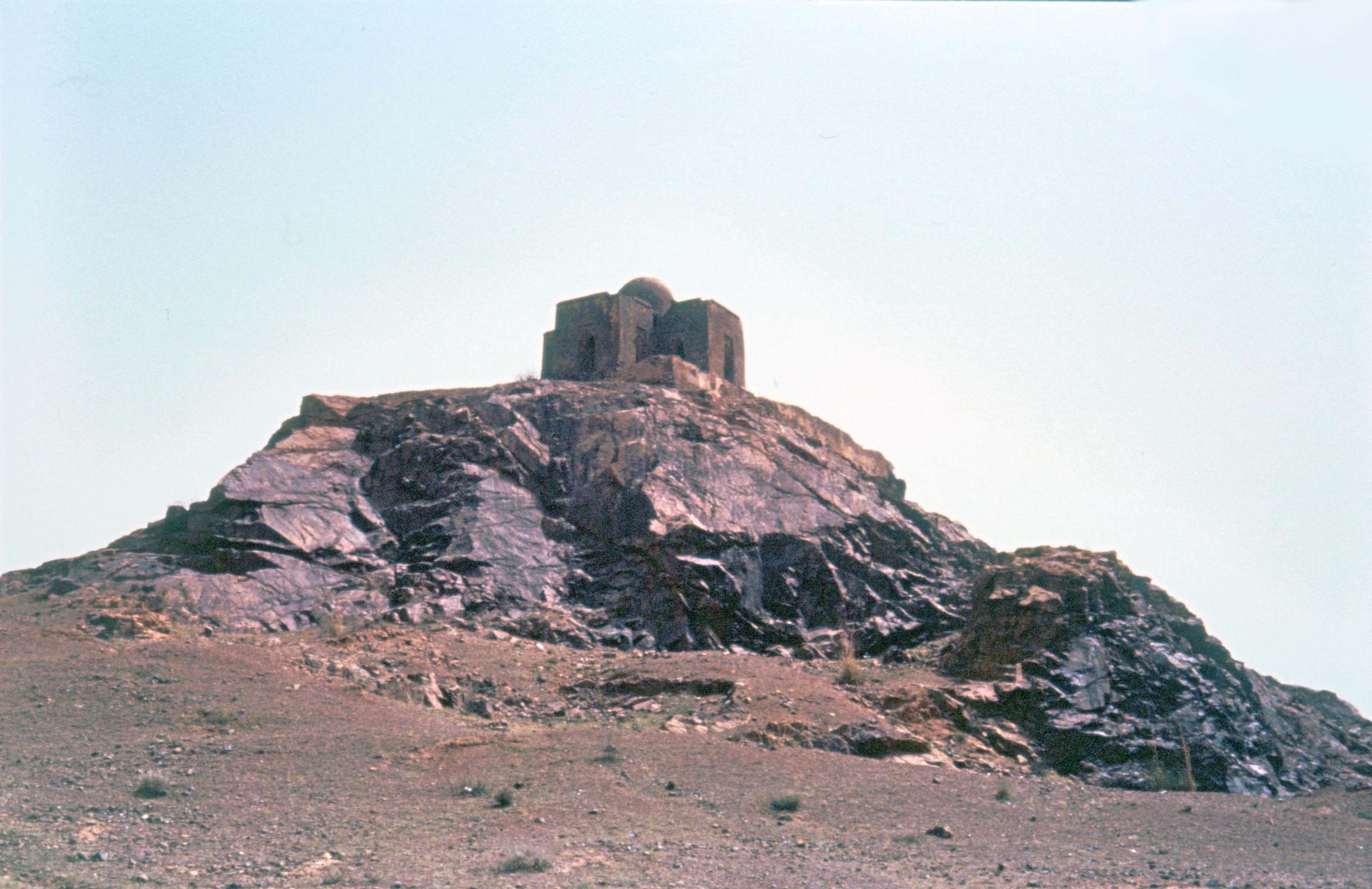 TOSHAM TOSHAM
The Baradari
FATEHABAD
Town plan Monuments in the Purana Qila.
BARWALA
Dargah of Baba Maqdam Pir Bara Gunbad
APPENDIX Baradari, originally a fire temple at Tosham
The Jami mosque of Malik Daylan in Ladnun.
|




